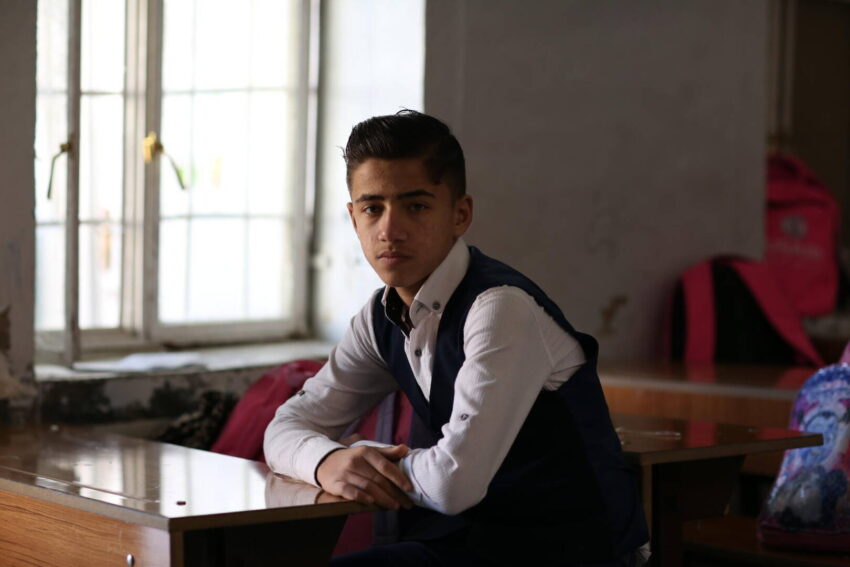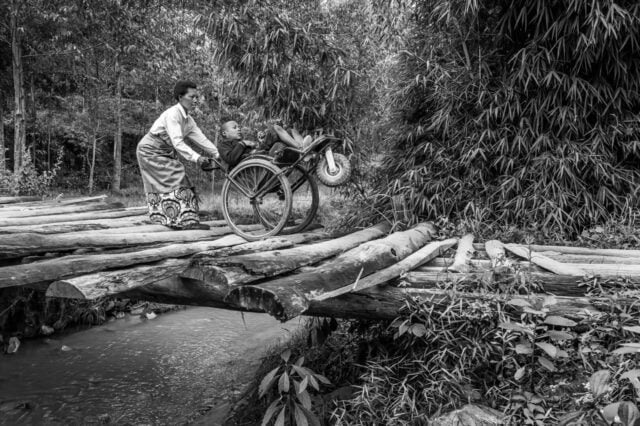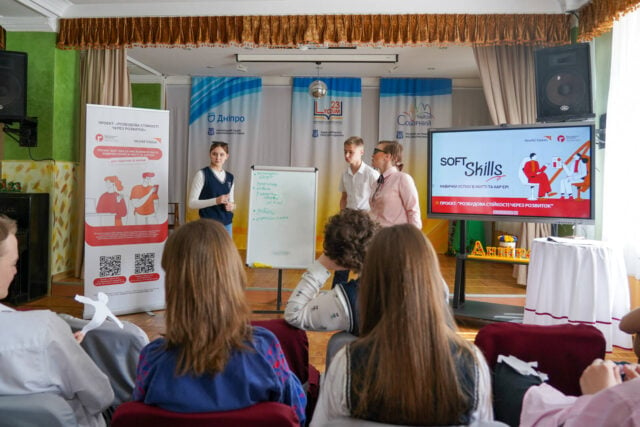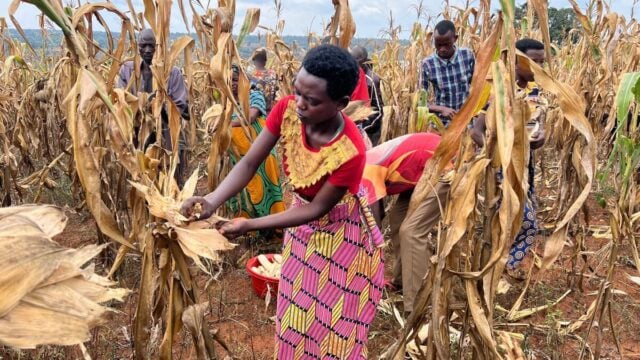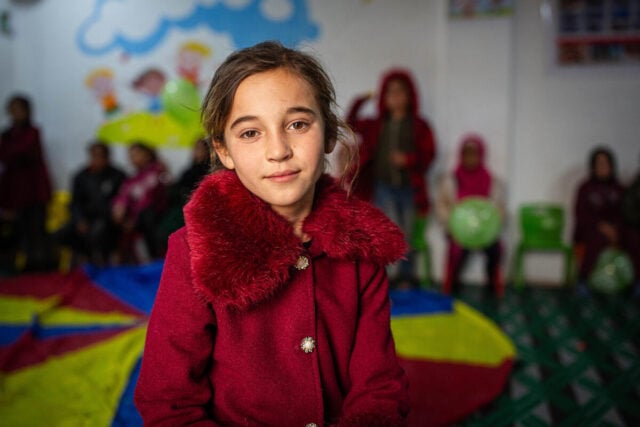Ahmed*, 14, was raised with his sister and three brothers in west Mosul, Iraq. Most of his upbringing Ahmed describes as normal — a stable family and place to live. He recalls spending time with his father, who taught him many things despite being blind. His father provided for the family and dreamed of ways his children could have a better upbringing than he had.
“My father was thinking of making a future for us. We had some land, and my father was thinking of making a house for us in the east side [of Mosul],” shares Ahmed.
Dreams came to a stark halt when ISIS fighters (also called ISIL) entered Ahmed’s city. Over a five-day span in 2014, ISIS captured Mosul — Iraq’s second largest city, one that’s historically important for trade in the country.
Education on pause
Ahmed’s family was not among the estimated half-million people who fled Mosul in the wake of the militant group’s arrival. His family couldn’t afford to uproot and start fresh in a new town.
Ahmed’s father valued education, and once shared with his son, “I don’t want to you not to go to school. Education is a weapon.” His blindness hindered his own education, and he attributed the family’s economic hardship to his lack of schooling. He desperately wanted his children to learn so they could have the opportunities that come with education as a tool for success.
In the wake of ISIS control, Ahmed’s father kept his children out of school. He feared that the curriculum would steer children toward extremist ideology. Ahmed respected his father’s decision. “Since my dad told me not to go, then that was it.” For a short time, Ahmed worked in a chicken factory to help make ends meet for his family. Otherwise, he and his family remained indoors, fearful of ISIS and their harsh rule.
Tragedy
In 2016 the Iraqi operation to retake Mosul, ISIS’s last stronghold in Iraq, began. Conflict intensified close to Ahmed’s home and, this time, his family fled — grasping each other’s hands as they ran.
Boom.
“My father’s and my brother’s legs were cut, and my brother was in flames, but my mother took him out [to a safer place].” They had stepped on a land mine. The first day, his father passed away, and his mother wept beside his body for the entirety of the day. After a few days, Ahmed’s brother passed away as well. “Before my father died,” Ahmed remembers, “he told me to take care of my sister and mother.”
Ahmed is determined to fulfill his father’s vision. “My dream is to build [a house] for myself and my family, [and] to continue my education, and that all my siblings continue their education.” Ahmed is reminded of the horrific memory from 2016 each time he walks near the street where his father and brother died. He hopes to move across town near his grandfather’s home.
A new opportunity
Iraq’s Department of Education reported that 130 schools in Mosul were completely destroyed during ISIS control. After the occupation, students who were restarting school took placement exams. They often skipped grades after years of missed school. Ahmed said no. He wanted to return where he’d left off to ensure he’d learn every bit he could. When he reached the sixth grade, Ahmed began to struggle, eventually failing his math exams.
Ahmed remembered the words of his father and the importance he’d placed on education. When a friend shared about a program that helps students catch up in school, Ahmed knew he needed to do everything in his will to succeed.
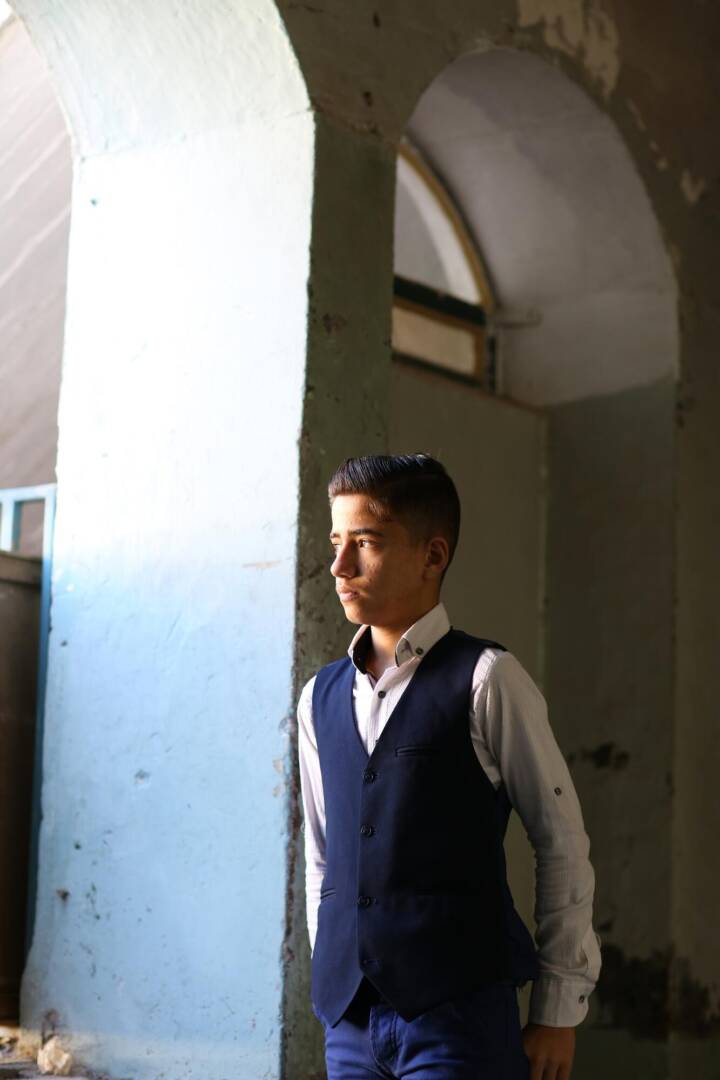
World Vision offers classes for students in partnership with a local organization in Iraq. Fahd, the program facilitator, recalls his first encounter with Ahmed. When Fahd was leaving school one day, Ahmed approached him, sharing how his father had passed away and their family income was around only US$8 a week. “He was tearful and was desperate to pass the exam. He said he wouldn’t mind sitting on the floor to just be able to listen to the classes so that he could pass.”
Classes had already started and were full. Nonetheless, Fahd enrolled Ahmed into the class and soon became a mentor in Ahmed’s life.
“I benefited from the catch-up classes a lot. I met with the facilitator, Fahd. He stood by my side and if not for him, I would have never passed. Fahd was great. Fahd cared for me. I loved him. He told me, ‘I am your father and your brother, and anything you want, I will do it for you,’” shares Ahmed, who now hopes to one day be a teacher.
Fahd saw Ahmed’s potential and knew World Vision’s program would help empower him to reach it. “Although [Ahmed] is a small child, he has a big mind. When you talk to him, you would think you were talking to someone who is 50 years old,” says Fahd.
With the support of Fahd and World Vision’s catch-up courses, Ahmed passed his math exam.
Ahmed’s father knew the power of education — a tool for opportunity. Through programs like catch-up classes, World Vision works to support children like Ahmed and enable them to excel.
* Name changed for security
Amy Van Drunen of World Vision’s U.S. staff contributed to this article.
